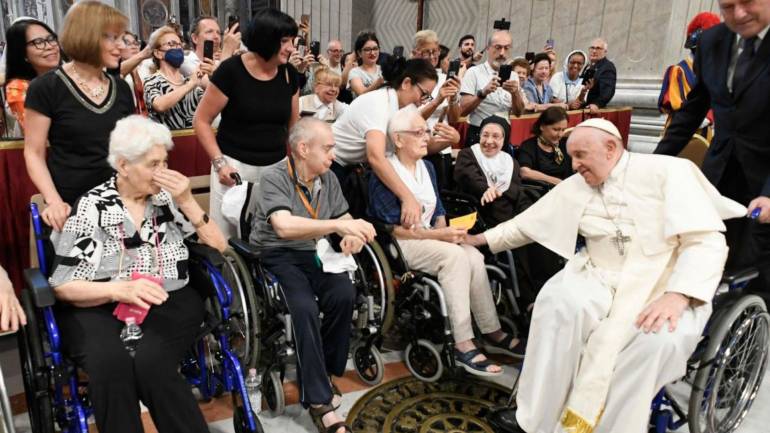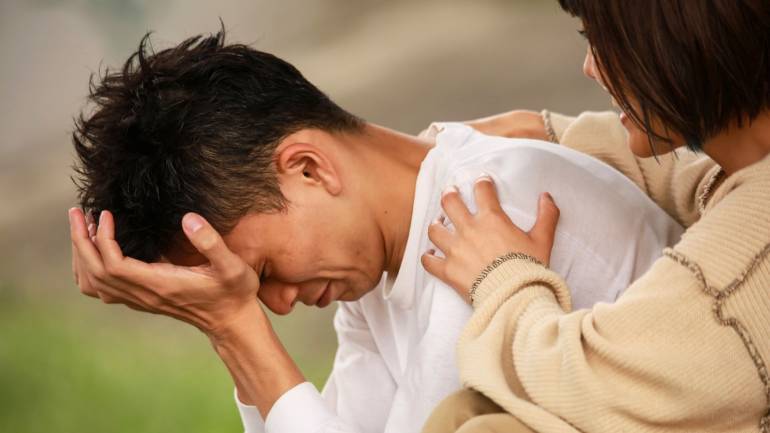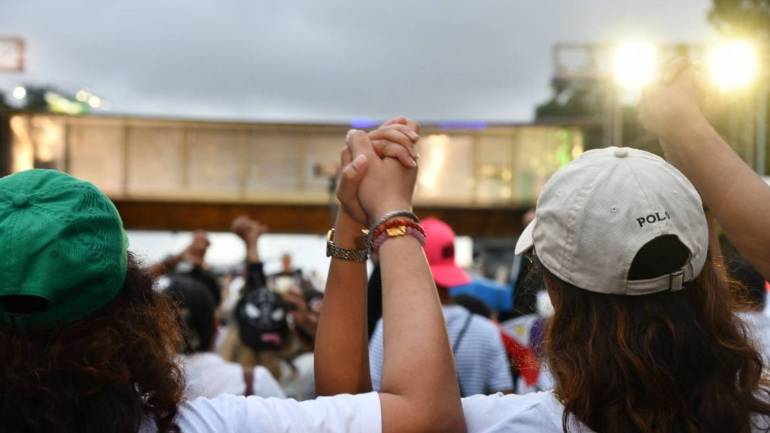The Courage to Be Vulnerable

In 2022, Pope Francis made a quiet but powerful statement, not through grand speeches or lofty theological declarations, but simply by allowing the world to see his physical vulnerability.
When he appeared in public with the aid of a cane and wheelchair, it wasn’t just about his physical need. His visible frailty sent a message far beyond words could: “It's okay to show your weakness and be vulnerable. You are still valued, loved, and worthy.”
For the elderly, people with disabilities, and anyone carrying hidden struggles, the Pope’s example was a reassurance. In a world that celebrates strength, control, and flawless appearances, that message was countercultural and deeply moving.
Uncomfortable with Weakness
Today, vulnerability is something many of us avoid, especially in public. Leaders, in particular, are expected to project strength at all times. Think about Queen Elizabeth II. In her later years, she consciously avoided public appearances in a wheelchair. While there may have been many reasons, it reflects how uncomfortable our society is with visible vulnerability, especially in leaders.
And it’s not just about others; it’s also about how we see ourselves. We live in a world obsessed with perfection. From the polished selfies on social media to the perfect apple at the grocery store, we’re bombarded with messages about how we should look, behave, and live.
The cancel culture is quick to judge and condemn. One mistake, one slip-up, and reputations can be torn down in an instant. So, we hide our cracks, thinking vulnerability is weakness, something to fix, cover up, or deny.
Confession
One of the most beautiful and intimate expressions of vulnerability in Catholic life is the Sacrament of Confession.
The world tells us to hide our flaws. The Church, in contrast, invites us to bring them forward, to name them honestly, to seek healing, and to be renewed. In confession, we stand before God as people in need of mercy. Instead of rejection, we find love.
Confession isn’t about shame. It’s about truth. It’s about saying, “I can’t do this on my own. I need help.” That takes courage. And that courage begins the process of transformation.
Each time we go to confession, we’re reminded that God doesn’t demand perfection, He desires our hearts. Offering Him our brokenness allows His grace to do what we cannot. That act of vulnerability helps us live with greater humility, compassion, and freedom. We’re not expected to have it all together, we’re simply asked to be real.
Deeper Meaning
Vulnerability is not just emotional or psychological, it’s deeply theological. As theologian Luis Granados writes, “Vulnerability is not something we overcome; it is always with us. Fragility isn’t a flaw in our design, it’s part of what makes us human.” Christianity teaches that dependence, on God and on one another, is not a defect; it’s a doorway to grace. Accepting fragility makes space for God’s strength. Jesus didn’t come as a warrior king; He came as a servant, riding a donkey, washing feet, and ultimately laying down His life. His vulnerability wasn’t incidental; it was central to His mission.

Letting Go
There’s deep freedom in admitting we’re not invincible.
When we let go of the act, when we admit our struggles and weaknesses, something beautiful happens, we make space for real connection. We allow others to be real, too. We become more approachable, more human, more relatable.
Pope Francis’s frailty didn’t diminish his authority; it enhanced it. If anything, it made his leadership feel more authentic. People could see themselves in him, not as a distant figure, but as a fellow pilgrim on the same journey.
Togetherness
Every person we meet is carrying something, grief, fear, doubt, or unspoken pain. While not all burdens are visible, they are always deeply felt.
When we approach others with empathy and compassion, we recognize we are not alone. The Christian faith allows us to connect our stories with those of our neighbors, offering comfort and solidarity. When united with Christ’s suffering, our burdens become part of a greater story of redemption. As St. Paul writes in 2 Corinthians 4:7: “We hold this treasure in earthen vessels, to show that the surpassing power belongs to God and not to us.”
Love and Virtue
Vulnerability doesn’t just reveal our need, it reveals our capacity to love. As Granados puts it, “The heart comes alive when it allows itself to be touched, wounded, and moved. Love always involves risk. It opens us to both pain and joy, mercy and transformation.”
St. Thomas Aquinas saw this connection clearly. He taught that true greatness isn’t arrogance, it’s humility. It’s doing great things while knowing that everything good comes from God.
Vulnerability, then, isn’t a detour on the path to virtue. It’s the very soil in which virtue grows.

Hidden Strength
So, how can we live out this “hidden strength” of vulnerability in our daily lives? Here are four invitations:
-
Acknowledge your fragility: Accept your limitations without shame. They are part of your story and make room for grace. (Mt 11:29)
-
Open your heart to love: Love is risky. Let your heart be touched, moved, and even wounded. That’s how we grow.
-
Serve the weak: Look around you. Who needs your compassion today? Vulnerability in service is real strength. (Evangelii Gaudium 209)
-
Trust in Christ’s wounds: After the Resurrection, Jesus still bore the marks of His crucifixion. His wounds weren’t erased, they were glorified. Yours can be too.
As Pope Francis once said, “The world tells us to hide our scars, but God tells us to show them so that His mercy can shine through.”
In a world that pressures us to be perfect, the Church should be a place where vulnerability is welcomed, not shamed.
Let’s be a Church that welcomes people just as they are, canes, wheelchairs, tears, doubts, and all. Because in God’s eyes, our weakness isn’t something to overcome. It’s where His love takes root and finds its home.








